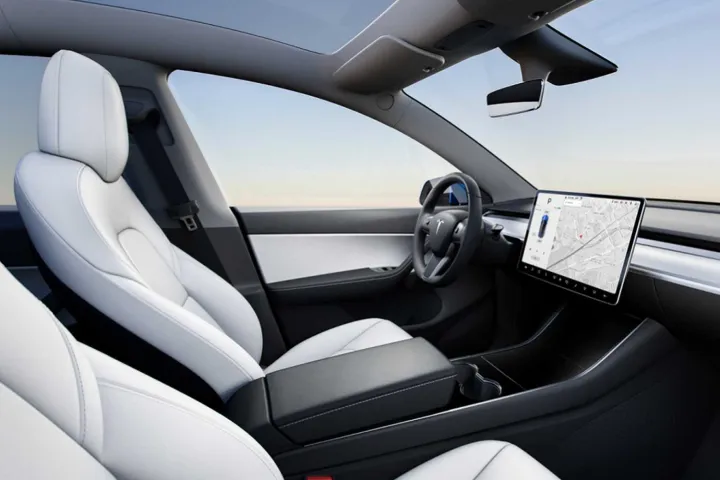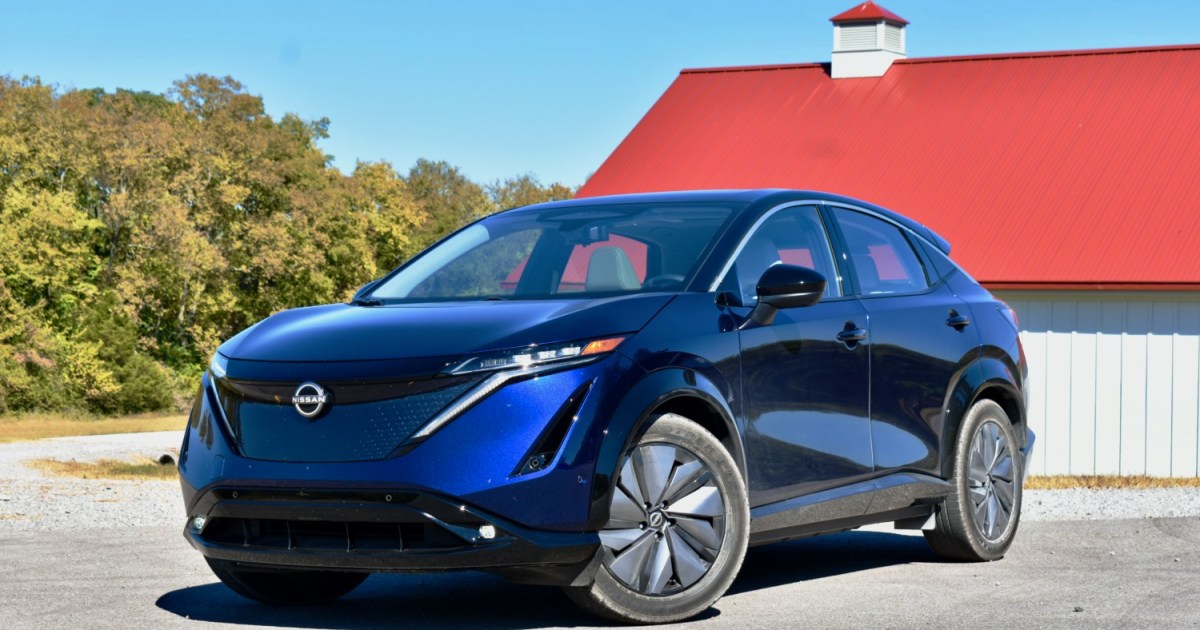
Nissan has been a little slow to the punch when it comes to electrification (besides the Leaf, of course). But now, it’s finally starting to electrify its lineup with the new Nissan Ariya. The Ariya is a crossover similar in size to the likes of the Ford Mustang Mach-E, the Kia EV6, and, of course, the Tesla Model Y.
If you’re in the market for a new electric car, you might be wondering whether you should go for the now-everywhere Tesla Model Y or stick with the newer Nissan Ariya. Both cars are seemingly more tech-focused, however, while the Ariya builds on Nissan’s decades of experience in the automotive industry, the Model Y takes a still-fresh approach to its car, at least compared to the competition.
So which electric car is right for your needs? Here’s everything you need to know.
Design

The Nissan Ariya takes a slightly more conventional approach. It looks much more like previous-generation gas-powered cars, even going so far as to have a faux grille at the front. While design is somewhat subjective, the car can look slightly disproportionate, with a sloped roofline at the top and a much larger body than you might expect.
That’s not to say it’s ugly by any means — but if you’re looking for something completely fresh and modern, then the Nissan Ariya may not be for you. That said, design is subjective and not everyone likes how Teslas look. This one’s a tie.
Winner: Tie
Interior and tech
The different approach to design extends to the interior of the cars too. The Tesla Model Y’s interior is minimalistic and scaled-back, putting most of the controls into the infotainment system instead of offering physical controls for things like climate. Some will consider this look sleek — but I generally prefer physical controls, except on rare occasions where companies truly do digital controls right.
The Model Y is pretty tech-heavy, though. The car boasts a large 15.4-inch display at the front, with a relatively well-designed and easy to use operating system. From here, you’ll gain access to Tesla’s suite of cameras, driver-assistance features, and mapping.

The Nissan Ariya, again, takes a more conventional approach. There are many more physical controls and buttons, coupled with dual 12.3-inch displays at the front for instruments and infotainment. The car’s software isn’t as well-designed as Tesla’s, but it does support CarPlay through a wireless connection, unlike Tesla, which doesn’t support CarPlay at all.
Ultimately, interior design is subjective, but there’s no denying that the Model Y offers more, and better, tech.
Winner: Tesla Model Y
Performance
Both the Tesla Model Y and the Nissan Ariya benefit from that electric car zip, but they don’t quite perform the same. The Nissan Ariya, for starters, is available in a number of different powertrain and battery size options, all with slightly different performance and range numbers. Nissan doesn’t really advertise zero-to-60 times, but MotorTrend noted that the single-motor variant got from zero to 60 miles per hour in 7.5 seconds, while the dual-motor configuration hit that speed at 5 seconds. Those are quick times.

But not as quick as some variants of the Model Y. The standard Model Y is able to get from zero-to-60 in 6.6 seconds, but upgrade to the Model Y Long Range, and you’ll reach 60 in only 4.8 seconds. Step up one more time to the Model Y Performance, and you’ll get to 60 mph in an astounding 3.5 seconds.
Winner: Tesla Model Y
Range and charging
The range on these cars differs, too. The Nissan Ariya has a range of between 205 miles and a much more livable 304 miles, though to get that, you’ll need to pay for higher-end models. Unfortunately, it doesn’t charge very quickly; the maximum rate is 130 kilowatts, which is pretty low.

The Tesla steps things up, once again. The Model Y has a range of between 260 miles for the base model and 330 miles for the Long Range model. Add in the fact that the car can charge at up to 250kW (and has access to the Supercharger network), and there’s a clear winner here.
Winner: Tesla Model Y
Pricing and availability
Both the Tesla Model Y and the Nissan Ariya are now available, and you can get either one through their respective channels. The prices are similar, too. The Nissan Ariya starts at a little over $43,000, while the Model Y starts at almost $44,000 at the time of this writing.
The difference in price is minimal, but cheaper is cheaper.
Winner: Nissan Ariya
Overall winner: Tesla Model Y
This one is a pretty clear victory for Tesla. The Nissan Ariya isn’t a bad car — far from it. But the Tesla Model Y shows Tesla’s experience here. Even without considering design, the Model Y has a better performance and longer range — two things that are crucial to a good electric car experience. If you’re looking for an electric crossover and deciding between the Tesla Model Y and the Nissan Ariya, the Model Y is the way to go.
Editors’ Recommendations

